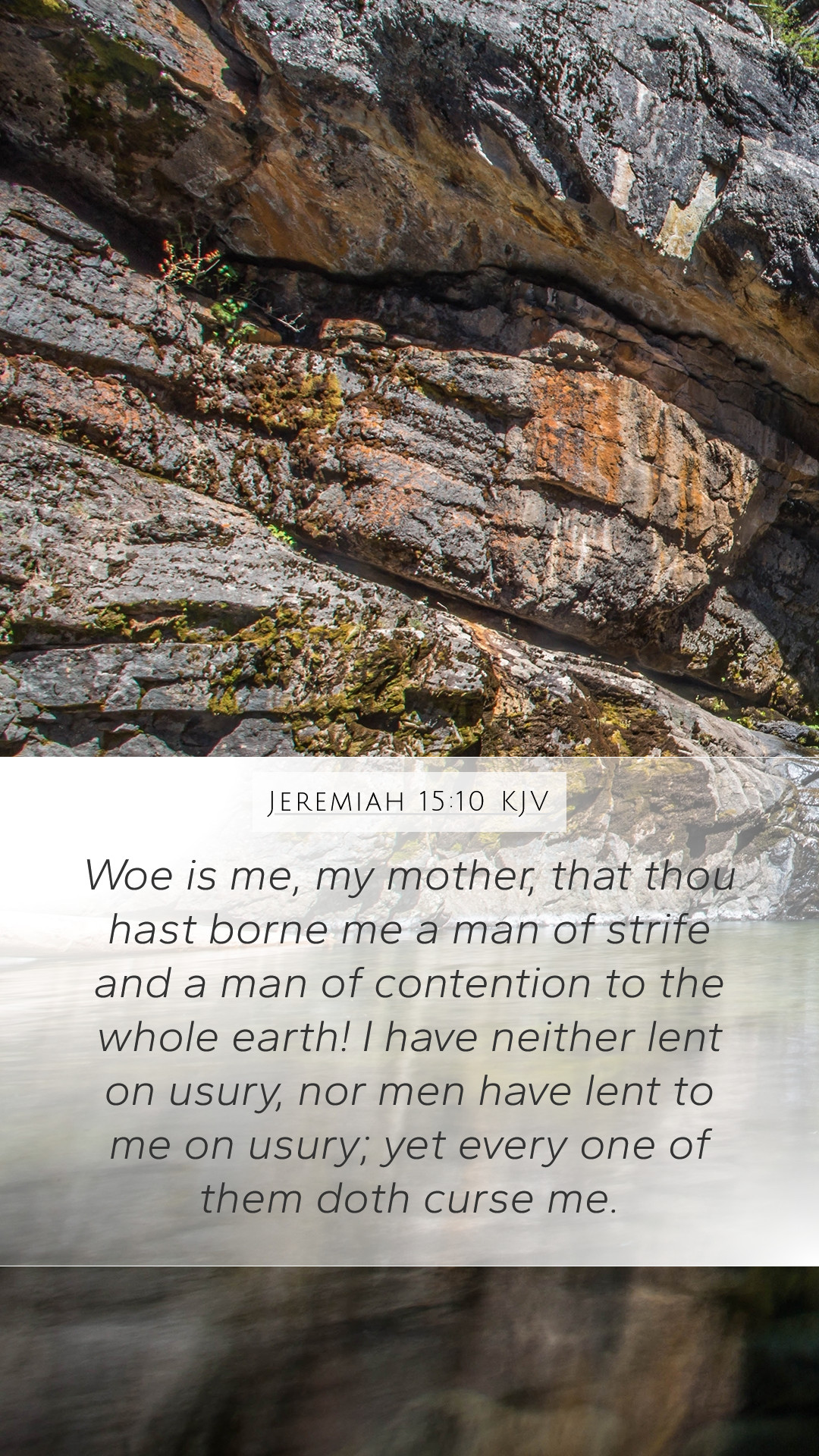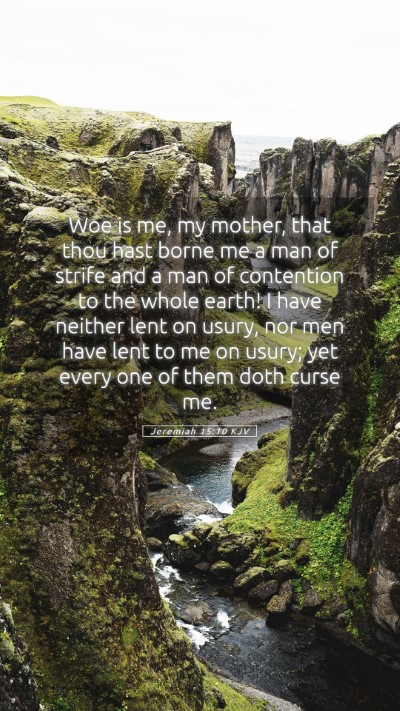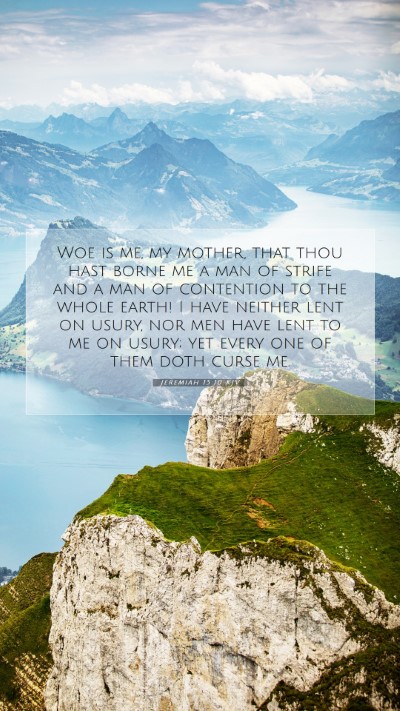Bible Verse Meaning: Jeremiah 15:10
Jeremiah 15:10 states: "Woe is me, my mother, that thou hast borne me a man of strife and a man of contention to the whole earth! I have neither lent on usury, nor men have lent to me on usury; yet every one of them doth curse me."
Overview of Jeremiah's Lament
This verse encapsulates the profound distress of the prophet Jeremiah, expressing both personal anguish and a reflective commentary on the challenges he faced as a prophet of God. His lamentation is not merely about his own suffering but encapsulates the broader message of his prophetic ministry, characterized by conflict and opposition.
Interpretations and Commentaries
-
Matthew Henry's Commentary:
Henry emphasizes the sorrow of Jeremiah, reflecting on how his prophetic calling leads to strife. His reference to being a "man of strife" symbolizes the ongoing opposition he faced from the people, which was, in part, due to the unpopular messages he delivered. Henry explains that Jeremiah feels estranged from both his own people and the world, suggesting a sense of isolation that accompanies divine calling.
-
Albert Barnes' Notes:
Barnes views this verse as a vivid expression of Jeremiah's deep-seated grief regarding the rejection of his message. He notes that Jeremiah laments the burden of being a prophet during times of great turmoil, pointing out that although he committed no injustices (like lending with interest), he is nonetheless maligned. This highlights the often thankless nature of prophetic work and the misunderstanding frequently directed towards those who speak truth.
-
Adam Clarke's Commentary:
Clarke provides insight into the cultural ramifications of Jeremiah's lament. He discusses the implications of being termed a "man of contention" in a society that values harmony and peace. Clarke further details that Jeremiah's sense of being cursed reveals the fierce resistance faced not only from the people but also from the societal structures advanced against prophetic truths. He notes the rarity of genuine prophetic voices in an era marked by widespread moral decay.
Applied Understanding
The expression of woe and lament is a recurring theme in Scripture, particularly among prophets and leaders chosen by God. This verse invites readers to consider the emotional burden of speaking God's truth within a culture that often resists it. Jeremiah's struggles invite reflection on our perceptions of those who deliver uncomfortable messages today.
Key Themes and Analysis
- Isolation of the Prophet: Jeremiah feels acutely alone in his mission and is marked as a source of contention, reflecting how God’s messengers can often feel alienated and misunderstood.
- Injustice in Rejection: His lamentation speaks to a broader societal rejection of divine truth, where righteousness may lead to scorn, rather than acceptance.
- The Burden of Calling: Through his expression, we gain insight into the challenges faced by those answering God’s call, serving as a reminder of the strength required to endure opposition.
Cross References
- Job 30:20: Job expresses similar feelings of abandonment by God.
- Psalms 88:1-3: A psalm reflecting deep personal agony and isolation.
- Isaiah 49:4: Another prophet expressing feelings of futility in his mission.
Conclusion
Jeremiah 15:10 serves as a poignant reminder of the emotional toll that prophetic warnings can carry. It engages readers in a deeper understanding of the difficulties inherent in speaking truth, analyzing both the societal implications and personal ramifications of such a divine calling. Through the lenses of various commentaries, this verse enriches our bible verse understanding and offers invaluable bible study insights.


